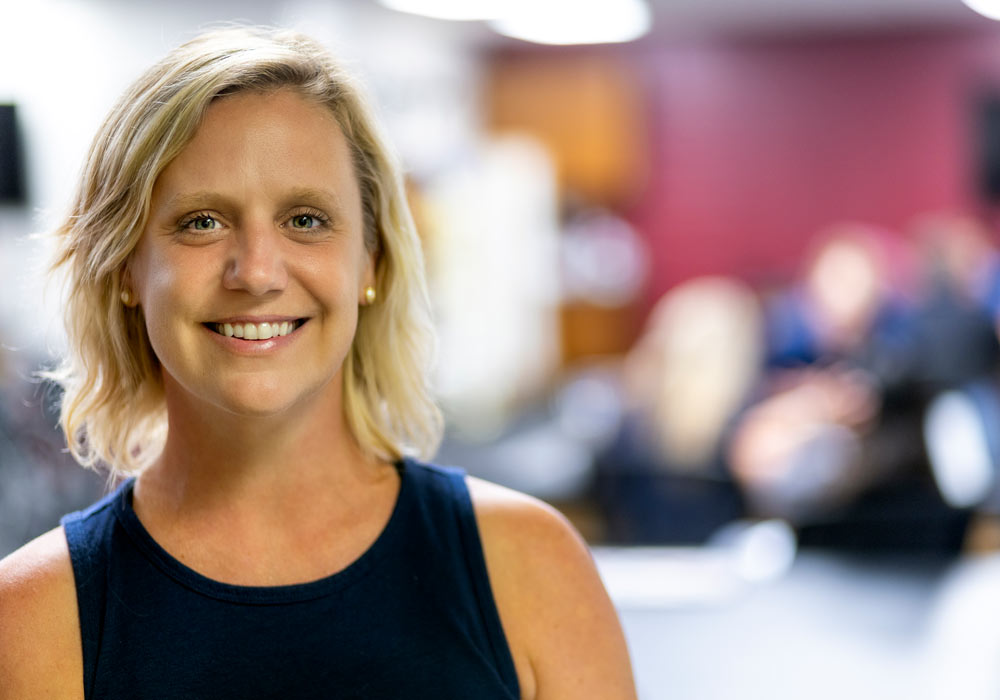Alicia Flach uses the same technique to teach her physical therapy students as she uses to help her patients — a science-based system of learning and reflection that allows them to adapt to new information in the rapidly developing field.
“As a physical therapist, I use principles of learning to promote rehabilitation and recovery,” says Flach, a 2023 clinical teaching award winner. “I aim to create an organized course structure with clearly defined expectations and a learning environment that is collaborative and flexible.”
A first-generation college student, Flach wasn’t sure what she was going to do with her science major until a volunteer assignment to a rehabilitation unit led her to a career in physical therapy.
“Every career change I’ve made, it’s been to have more touchpoints with students.”
Flach earned her doctor of physical therapy from the University of South Carolina in 2008 and expects to complete her educational doctorate (Ed.D.) in educational practice and innovation-curriculum studies in 2025. She has been teaching at the Arnold School of Public Health since 2017.
“She positively impacts the doctor of physical therapy students at USC through her evidence-based clinical teaching with a focus on individuals who have neurological impairments,” says Shana E. Harrington, director of the physical therapy program in the exercise science department.
“She has significantly and continuously revised the courses she teaches to meet the needs of an ever-changing evidence-based health care profession. One significant enhancement she has made is bringing patients into her classes to allow students the opportunity to interact, similarly to how they will in the clinic, as well as provide direct hands-on experiences.”
Flach’s teaching philosophy for both students and patients includes trial and error and adjusting as needed. About midway through each semester, Flach asks for feedback from students, and they talk as a group about any changes that need to be made to better address students’ learning needs.
“A key pillar of my teaching philosophy and approach is to model collaboration, flexibility and self-reflection,” Flach says. That approach “has allowed me to experience personal and professional growth alongside the growth of the students.”
Flach also is the faculty principal for the Galen Health Fellows Living and Learning Community, where she will shepherd more than 300 freshmen interested in health care.
“Every career change I’ve made, it’s been to have more touchpoints with students,” she says. “This felt like a natural progression of being able to mentor even more students in becoming health care providers.”
Flach’s research focuses on walking and balance for people with Parkinson’s disease and Multiple Sclerosis. During her time at USC, Flach has provided research mentorship for 22 DPT students and seven undergraduate students.
